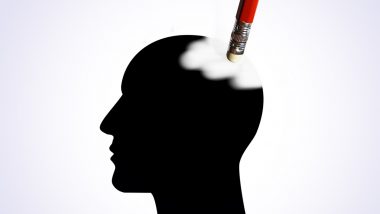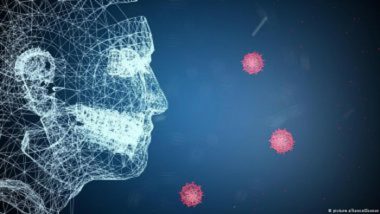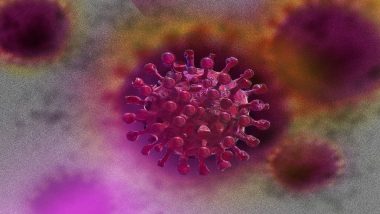The pandemic of Coronavirus has gripped the world ever since the start of this year. 2020 nears an end, but the cases of COVID-19 still continue to rise. Over 45 million people the world over have been infected by the deadly disease and claimed a million lives! While many have recovered from the disease, the worry doesn't end there. Many patients are suffering from post-COVID symptoms which continue after the person's recovery from coronavirus. One of the listed symptoms among them is brain fog. There have been numerous researches being done simultaneously to understand the virus, its treatment, vaccine development, and post-COVID care. Let us understand what does brain fog mean. How Long Are You Immune After Recovering From COVID-19? CDC Clarifies That Coronavirus Immunity is Still a Mystery.
In the early start of October, one of the study found out that people who recover from COVID-19 infection may experience "brain fog" and other neurological symptoms. These were linked to post-traumatic stress disorder (PTSD), an effect observed in past human coronavirus outbreaks such as SARS and MERS. In a brain fog, people experience difficulties in concentration, as well as headaches, anxiety, fatigue or sleep disruptions.
What is Brain Fog?
Brain Fog is not a medical term but a colloquial term which describes a person's inability to have a sharp memory and stable focus. People are unable to think clearly and that can result in other medical issues and complications. People are unable to get dedicated hours of sound sleep, which also affects in functioning the following days. There may not be a loss of memory but the recall value is affected. Massachusetts Man 'Allergic' to Ejaculation Suffered Severe Symtoms like Brain Fog, Anxiety for Weeks! Know More About Post-Orgasm Illness Syndrome (POIS).
Other Post-COVID19 Symptoms
Many doctors and researchers have pointed out neurological effects of the virus. According to studies, neurobehavioural symptoms are being reported by one-third of infected individuals. The long-term effects of coronavirus affect other body systems like the pulmonary (affecting the lungs), cardiac (heart-related) and mental health. Patients have experienced chest pain, breathlessness, fatigue and abnormalities in their heart rate. Study also finds that COVID-19 patients can suffer long-term lung and heart damage. Along with these physical implications, a person's mental health is also affected. Firstly, with the fear and anxiety of getting the disease and recovering from it, then with social stigma that they face in the society post the recovery. Loneliness is another thing to deal with for those in complete quarantine and away from their family members. All of these do impact a person's mental health.
(The above story first appeared on LatestLY on Nov 02, 2020 03:49 PM IST. For more news and updates on politics, world, sports, entertainment and lifestyle, log on to our website latestly.com).













 Quickly
Quickly





















